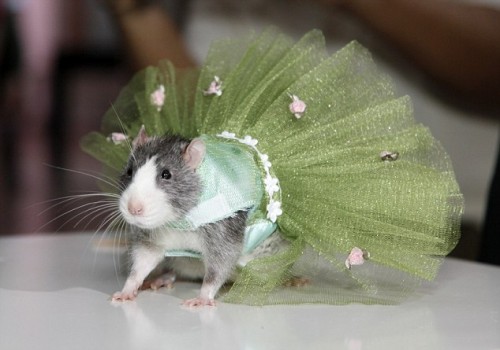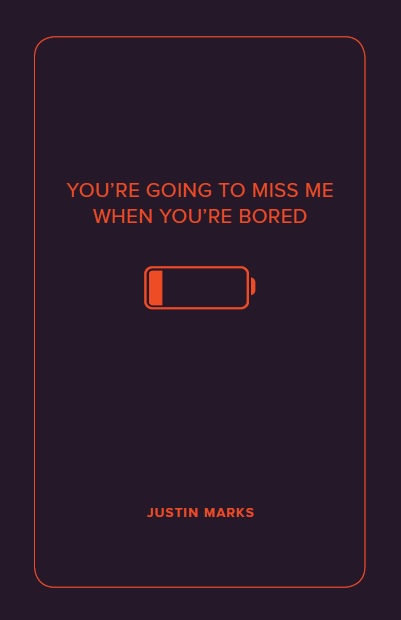Because by Joseph Riippi
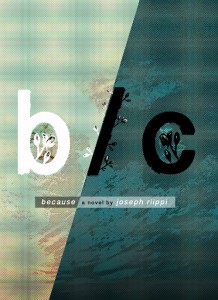 Because
Because
by Joseph Riippi
Civil Coping Mechanisms, February 2014
175 pages / $13.95 Book page at CCM / Buy from Amazon
It only takes about seven pages to begin to feel pained—even offended—by Joseph Riippi’s Because. This is primarily because every single sentence in the book (spoiler alert: except the last) begins with the words “I want.” A structure like this poses serious problems for a reader like me and like most of us, hyper-aware of the sins of heavy-handedness and bared authorial intention as we are. Because’s offenses against a readerly sensibility include:
1) Narcissism. It’s hard to like a book authored by someone who seems to speak only about himself.
Caveat: Riippi knows this. He says:
I want to feel less narcissistic for writing this.
I want to be honest in writing this, even if honesty means narcissistic feelings.
2) Melodrama/naïveté. The battle of the genuine vs. the ironic has been played out on many fields in the last few decades. I’m most acquainted with David Foster Wallace’s part in the battle for a post-postmodern literature that might be honest with the reader without being formally regressive. People mostly cite his “E Unibus Pluram” essay from A Supposedly Fun Thing I’ll Never Do Again when referring to this tension.[1]
Caveat: Riippi also knows this, and he is willing to own it.
I want you to know I mean this completely and sentimentally but unabashedly and honestly and without shame.
3) The economics. What right does a white American male with the wherewithal to write a book have wanting so many things? It would be easy to tee up Because as a “typically American” book, so focused on personal desires that it fails to consider the actual hardships of the external world.
Caveat: I’m pretty sure Riippi knows this too. Not quite as explicitly, but his desires are so robust, so myriad, that such an acknowledgment often seems implicit in them. In this section, for example:
I want better cellular reception. I want an espresso machine. I want espresso to be good for me. I want health to be delicious. I want all that is delicious to be good for me and all that is disgusting to be good for me…I want a self-filling refrigerator and self-cleaning pans and pots that never stain.
All of which is to say that Because feels to me as if it is kind of supposed to be painful to read. I came in knowing the “I want” premise of the book, expecting Because to be an experimental novel that would be a little difficult to get through. And it is that, but not in the way you think of experimental—distant from the reader, difficult in terms of breaking the code of its linguistic tricks. Instead, it is so open, bleeding, and honest that it is almost impossible to stand. This is its own kind of experimentation, I think, and an extremely valuable one—both in making us examine our readerly biases and in urging us, time after time, to transcend them by sticking with the narrator on a project, he admits, he is so unsure about.
All that said, there’s more to Because than just “its simple mantra-like structure,” as Kevin Sampsell’s blurb calls it. The book is split up into segments that are usually between one and four pages long, titled with the first line of each section. The “wants” often shift dramatically within a given section, from college-ruled paper to grandmother’s grocery lists to bioluminescent flowers, for example. But the book really begins to stride when Riippi stays on a subject for the entirety of a section, or longer. In one segment, he speaks of his friend Jenns; how as the only freshmen on the high school football team he and Jenns had their heads shaved by a guy named Gator; how Jenns took the fall after the team TP’d a cheerleader’s house; how Jenns shot himself, later, leaving an indelible mark on the narrator’s life. The narrative continuity of sections like this is striking in a work that usually shifts desires and subjects rapidly. The Jenns thread and a few others like it almost constitute a sort of home, reminding us, suddenly, how welcome such a narrowed focus can be.
But perhaps the most interesting strand that comes out of Because is a certain kind of “want” peppered across the book, especially in its later pages: the desire to live fully and dangerously in a world where our lives can often feel sanitized and certain.
I want to narrowly escape an explosion. I want to hear the sounds of falling bombs. I want to drop for cover and pray, to dig inside my helmet for a rosary or talisman, to hear over the cataclysm the prayers of all my brothers who surround me.
I want to tie tourniquets and grasp bloody hands. I want to learn the Last Rites by heart.
Passages like these feel odious at first, wildly privileged. They seem to make tragedy into a tourist attraction, commodify suffering instead of rejecting it as those who have experienced it would urge anyone to do. But upon encountering this sentiment again and again, the reader has no choice but to begin to understand it. Riippi’s speaker wants to live—and so might you, if you’re warm and safe somewhere now. It is only that Riippi is not afraid to say so.
This is a sensation that occurs more and more as you enter the book’s later pages: Riippi simply has no fear of how he will be perceived. Perhaps the most recurring image in Because is the narrator’s grandfather pounding a nail into a cedar tree with his bare hand. It is a fitting metaphor for the work Joseph Riippi has done with this book. It hurts, a lot, to read something so raw, composed with few tools besides human desire. But once you have finished—once the proverbial nail is in the tree—it is even more difficult to get it back out, to forget a book as open and rending as this.
***
[1] In another example from 1997, Wallace called David Markson’s Wittgenstein’s Mistress “a magical book, not because it alternates between incredible intellectual stunt-pilotry and pathos but because it manages to marry the two in a way that—I mean, that’s what my dream is, to someday be able to do something like that.” KCRW Bookworm interview, 1997. ~20:30.
January 24th, 2014 / 10:00 am
Announcing Requited #10
I’m pleased to announce that the tenth issue of Requited is now online and contains:
- Fiction by Rich Ives and Lauren Wallach;
- Poetry by Janelle Adsit, Naomi Buck Palagi, Lance Garland, Matt Trease, Lina ramona Vitkauskas, and Caroline Crew & Chris Emslie;
- Nonfiction by Virginia Konchan and Jarrett Neal;
- Visual art by Jenny Magnus, Nicole Matos, and Zoe Nelson.
Furthermore, in the journal’s rapidly-growing archives, you’ll find poetry by Molly Gaudry and Nate Pritts; fiction by James Tadd Adcox, Jimmy Chen, Jac Jemc, Tim Jones-Yelvington, and Suzanne Scanlon; nonfiction by William Bowers, Jeremy M. Davies, Julianne Hill, Steve Katz, Mark Rappaport, Keiler Roberts, Viktor Shklovsky, and Curtis White; interviews with Robert Ashley and Vanessa Place—and other wonderful things.
Enjoy!
25 Points: EarthBound by Ken Baumann
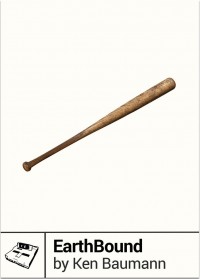 Earthbound
Earthbound
by Ken Baumann, Foreword by Marcus Lindblom
Boss Fight Books, 2014
191 pages / $14.95 Buy from Boss Fight Books
1. This past December found me at several Christmas parties and office get-togethers (mostly with my wife’s coworkers and friends). Because I’m kind of self-absorbed and, even if I wasn’t, I’ve been spending the past five months with my newborn son, I don’t have much to contribute by way of conversation, so I turned to talking about Earthbound.
2. My parents never bought me a Super Nintendo or any of the other 90’s child indulgences (although I was a member of the Burger King Kid’s Club and was allowed to watch hour upon hour of Nickelodeon), so I had no point of reference for the cult-hit video game.
3. I had trouble finding anyone who knew what I was talking about. They had never heard of the game, and cared even less about Ken Baumann’s book.
4. The few times that I actually found someone who played Earthbound our conversations were hauntingly simple.
5. Me: Have you ever played Earthbound?
Partygoer: You need to go home tonight and play it right now. [End of conversation.]
6. I never got around to it. Blah-blah work. Blah-blah new parent. Blah-blah smartphone.
7. But the real reason why I didn’t play it was because of how purely pleasurable Baumann’s book is.
8. Ken Baumann’s Earthbound is a charming intermingling of videogame history, walkthrough, memoir, and philosophy. He serves as Virgil to the reader’s Dante as he guides us through the “total inverse of Dante’s Hell” that is Twoson, Threed, Summers, and the other locales of the game while drawing on everything from Straw Dogs and Jung to Gak’s role in 90’s gross-out culture and House.
9. Baumann depicts the “irretrievable beauty in video games…” as a Romantic would depict vernal wood. As sacred: “Ephemeral glitches that point to the sublime. Randomized variables that are made more poetic in their expression by their adjacency to the rote and the banal.”
10. The strongest of Baumann’s threads are the biographical ones. Earthbound [the book] is a study of how Earthbound [the game] impacts lives, especially the lives of little Kenny in Texas, his estranged brother Scott, and the support of Ms. Baumann, and the loving Aviva. READ MORE >
January 23rd, 2014 / 4:43 pm
If you haven’t read Alan Moore’s (supposed) last interview, I highly recommend it. He defends his League character the Galley-Wag, responds to accusations that he’s “rape-obsessed,” then spends upwards of ten thousand words unloading on Grant Morrison.
Boys Who Kill: Nathan Leopold and Richard Loeb
The third installment of Boys Who Kill stars Nathan Leopold (right) and Richard Loeb (left). On 21 May 1924 in Chicago, Nathan and Richard kidnapped and killed a 14-year-old boy.
Nathan and Richard each had daddies who amassed mountains of money. Nathan’s daddy owned one of the biggest shipping business in the country and Richard’s daddy was the vice president of Sears Roebuck. But the wealth that surrounded them didn’t dispel boredom. The two didn’t want money, they aimed for fame, sensationalism, and transgression. One of Richard’s favorite dreams had him as a notorious criminal who was beat and whipped in public, with girls and boys arriving in droves to express their mixture of awe, sympathy, and disgust. As for Nathan, he envisioned himself as a king’s favorite slave. One day, Nathan saved the king’s life, and the king offered to set him free, but, being loyal, Nathan declined. Both fantasies are rather Jean Genet: they are sumptuous, romantic, and somewhat sordid.
Like that French prison boy, Nathan and Richard carried out many crimes, including stealing automobiles and smashing bricks through windows. Mostly, though, the crimes were initiated by Richard, who insisted that Nathan come along to serve as an audience. After the two stole a typewriter and other possessions from Richard’s former frat house at the University of Michigan, Nathan became upset at Richard because the latter wasn’t wasn’t having enough xxx with the former.
Nathan and Richard’s friendship/boyfriendship sort of resembles the typical depiction (though it’s likely bullcrap) of Eric and Dylan. Eric is the aggressor and Dylan is the follower. Eric constructed NBK and Dylan just acquiesced. It’s also been rumored that Eric and Dylan liked boys (though that’s definitely bullcrap). Columbine jocks told the media that the two BFFs were a part of the Trench Coat Mafia, whose members touched one another in hallways and convened group showers. In Gus Van Sant’s Elephant, the two Columbine-esque boys get into the shower together and kiss and maybe do other things before they commit their high school massacre.
But Nathan and Richard really did like boys. Though Richard was perceived as the leader, he was the one who took it in the tushy. That this is so, sort of confounds how boys who take in the tushy are assessed. Richard engineered many crimes, including murder, so maybe boys who take in the tushy aren’t all basic bitches after all. Another hypothetical reason for why Richard took it in the tushy is, as he declared to friends, he didn’t need xxx. Richard was beyond lust and all of that other stuff that occupies the ironic minds of 20-something Brooklyners day and night. The symbolism about taking it in the tushy had no effect on him, as he only cared about a life of crime.
On Tao Lin’s Taipei
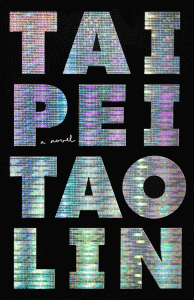 Taipei
Taipei
by Tao Lin
Vintage, June 2013
256 pages / $14.95 Buy from Amazon
Tao Lin is a writer whose novels, short stories, poetry, and essays have won many admirers, and inspired what seems like an equal amount of detractors (it’s a conversation being energetically carried out on the Internet, for the most part). His recent novel, Taipei, is his most publicised book. It’s about a young writer living in Brooklyn who ingests lots of illicit and non-illicit drugs, uses his MacBook to ‘work on things’, goes on a book tour, visits his parents in Taipei, ingests more drugs, and tries to connect with people.
Though I’d come across bits and pieces of Tao Lin’s writing online, my response was emphatic in neither a positive or negative direction, and it would hardly constitute a bias. The thrill, therefore, I got from reading the first sentence of Taipei was pure, and due as much to my having an immediate feeling as it was to the sentence being good. I’ll reproduce it here, for the pleasure of doing it, and possibly to annoy anyone who doesn’t agree with me: It began raining a little from a hazy, cloudless-seeming sky as Paul, 26, and Michelle, 21, walked towards Chelsea to attend a magazine-release party in an art gallery. As far as sentences go, it’s accessible, controlled, and idiomatic. Its tone, too, is consistent throughout the novel – which could pass as one definition of good writing. In regards to Tao Lin, whose prose veers so close to ‘bad writing’ that it sometimes reads like parody of bad writing, it’s an important distinction to make.
I’ve read that Tao Lin completed his bachelor’s degree in Journalism. Although it’s a bad habit to speculate on a writer’s influences, I can’t help but draw a connection between this biographical fact and his third novel. For one, Taipei is an autobiographical account covering 18 months. The novel is, for the most part, chronologically linear, and much of what happens finds its genesis in Paul’s (journalistic?) impulse to self-document. There is the absurd, fake documentary Paul and Erin decide to make about the ‘first’ McDonald’s in Taipei; filming themselves on MDMA and other drugs to post on YouTube; live-tweeting X-Men First Class while on heroin; writing accounts of their first ‘drug fight’ (both Paul and Erin render it in a ‘Raymond Carver-esque manner’, as it happens); Paul emailing himself a bullet-point account of a dinner with Erin parents, etcetera.
What’s most interesting, though, is the manner in which Tao Lin uses as a model journalistic prose. In doing so, he upends certain expectations of artistic and imaginative writing. For instance, there is a pretence to objectivity that characterises much reportage, and it results in writing that is cold and impersonal; this is a quality mimicked in Taipei, whose sentences are often flat and literal. However, while this is what the surface of the prose conveys, what it’s actually presenting is a third-person voice so close (and indistinguishable from Paul) that it is radically subjective. Tao Lin adopts stylistic traits associated with the opposite of ‘literary’ writing; a denotive, sub-literary style becomes prose whose innate quality is not what it seems. The agility and nuance of the syntax can balance multiple clauses, and take the reader off-guard with the most unlikely images.
On the plane, after a cup of coffee, Paul thought of Taipei as a fifth season, or ‘otherworld,’ outside, or in equal contrast with, his increasingly familiar and self-consciously repetitive life in America, where it seemed like the seasons, connecting in right angles, for some misguided reason, had formed a square, sarcastically framing nothing -or been melded, Paul vaguely imagined, about an hour later, facedown on his arms on his dining tray, into a door locker, which a child, after twenty to thirty knocks, no longer expecting an answer, has continued using, in a kind of daze, distracted by the pointlessness of his activity, looking absently elsewhere, unaware when he will abruptly, idly stop.
One specific example of a stylistic signature that Tao Lin has made his own is the noting of the age of any person in Paul’s social life (as in the novel’s opening sentence). I’d say this does at least two significant things. Firstly, as I’ve mentioned, it’s reminiscent of purposely bland, direct reporting; and secondly, it satirises a contemporary social reality. Among creatively ambitious people (and the twenties might be its most intense manifestation) age is tied to notions of precocity and perceived achievement. Socially, these are two things many people want to embody, and which are the cause of much anxiety. As trivial though it may seem, the curiosity surrounding a social rival’s precise age, for many of us, is hard to overcome (often it’s the only thing we want to know).
His style also makes use of what can appear an egregious placement of adjectives. ‘Dancey’ music, or, a ‘vague’ amount of time: these are just two instances of a writer who might seem bored with writing. After all, it’s the sort of silly shorthand we use when we’re being lazy in real life. On the other hand, however, it’s also unsettling close to how many supposedly over-educated people speak, and narrate internally (as Paul is doing). To me it’s funny for its accuracy. And more than just comic effect, it captures the way clever, emotionally-isolated people can use language to distance themselves from their concrete surroundings, other people, and their own feelings. (A similar thing is achieved by the use of stock phrases and cliche, as contained in those now ubiquitous ironizing quotation marks.)
This all being the case, I’m not going to deny there was a point about mid-way through the novel when I put it down with the thought I’d had enough. Some of the long, diffuse sentences seemed unnecessarily confusing: It had seemed like they would never fight, and the nothingness of the future had gained a framework-y somethingness that felt privately exciting, like entering a different family’s house as a small child, or the beginning elaborations of a science-fiction conceit. But when I did put it down, I found the novel’s voice was stuck in my head. There is something about a sentence like the one I’ve just quoted which, to my mind, resembles pre-articulate thought. The spirit of Henry James hovers over the pages of Taipei. A Jamesian sentence does the impossible, it gives an impression of the inchoate process of consciousness, and at the same time, it crystallises multiple thoughts (all in what appears to be a single thought). A Tao Lin sentence makes the journey from inside Paul’s head, onto the paper, untransformed; in other words, it is an underdeveloped version of a Jamesian sentence in which nothing is crystallised. Tao Lin’s portrayal of the inner life is similar to the common experience of thinking like a genius, and when it comes to articulating the thought, speaking like an idiot (I’m misappropriating Nabokov.)
Which brings me to a final comment. It is tempting to read Paul (Tao Lin’s fictional avatar) as intended to be representative of an entire generation (or at least one of its more visible sub-groups – namely, Brooklyn-dwelling literary poseurs). But I don’t think that is the intention. To me, Paul is strange (and maybe even unique); and despite frequent moments of recognition, reading Taipei is not like looking into a mirror. For all its representation of a life lived through the internet, the novel’s aim is a traditional one.
…[Paul] uncertainly thought he’d written books to tell people how to reach him, to describe the particular geography of the area of otherworld in which he’d been secluded.
***
Tim Curtain writes fiction and lives in Melbourne, Australia. His reviews and stories have appeared online and in print.
January 20th, 2014 / 10:00 am
Great Guns by Farnoosh Fathi
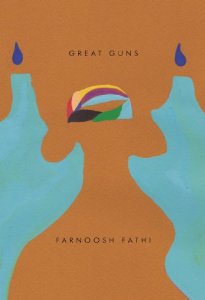 Great Guns
Great Guns
by Farnoosh Fathi
Canarium Books. 2013
88 pages / $14 Buy from SPD or Amazon
Farnoosh Fathi’s greatly anticipated debut poetry collection, “Great Guns,” begins:
Jimmy crack corn and I don’t care.
Jimmy crack corn and I don’t care.
A light peck cracks the constellations. (3)
Immediately, the book demonstrates the gale-like sonic qualities of Fathi’s writing. It’s almost difficult to utter the words “Jimmy crack corn and I don’t care” in a way other than that of the melodic, popular folk song. For many, this tune will immediately call up the coziness of the sing-alongs of playful childhood. These earthy comforts are very suddenly shattered, however, in an ambitious, universal way when we are struck out of the familiar, almost-ingrained melody by the unexpected, “A light peck cracks the constellations.” When I read the staccato-like single syllables of “A light peck cracks the,” I can almost feel the tapping of each word. Then comes the shattered release as we flow into the multisyllabic “constellations.”
Fathi’s orchestration of sound is masterful and complicated, not unlike the contents of her poems. For example, while reflecting upon all that happens within the first three lines of this opening, untitled piece, we might ask ourselves, why “Jimmy Crack Corn”? This tune, also known as “De Blue Tail Fly,” has less-than-straightforward roots. While many readers might nestle into the memories of their childhoods, then be immediately shaken by the third line, even the song choice is infused with complexities; the origins are somewhat undetermined, but may have been rooted in blackface minstrelsy. Perhaps these first lines are a warning to heed, one regarding the intricate layers of the collection.
Despite the readability of the rhymes woven throughout Great Guns, and amidst the provisions of aural comfort they do provide, the silver-tongued speaker’s conveyances are multiplex:
the waves explode but cannot kill a snail
whose castle is the quiet
on a nun’s navel. (3)
Nothing is forbidden, yet nothing is damaged, or perhaps everything is cherished, but also broken. It’s difficult to say. Regardless, each element is handled with the care of an old, almost-omnipotent soul.
This seemingly transcendental speaker paints scenes in which the lines between we, as humans, and the rest of the natural world are not blurred, but rather seem to be intentionally blended:
Who goes, asked the pore, there on one hand so beautiful? The modern
nets and fishes out contumely; there is palsy in the grass high on noon’s shoulders. (8)
This title poem, “Great Guns,” weaves together personification, chremamorphism, and somehow even a mixture of the two techniques, which perhaps refuses to be defined. For example, “The great guns of a lover— / his sweat broke into ants that led the other way” (8).
Both nature and meaningful coalescence are common themes within this collection. Fathi writes, this time within a prose poem, of the “Iris”:
and wield it like the too-deeply green-dipped paintbrush it
resembles. The wrist aches to hold and flex it, a newly
handled thing, to air-stroke a crescent n, a crescent u, a swirl, a
figure-eight, and this playful act of no consequence is a privilege
to anyone who beholds the iris, painter or no. (41)
Yes, we desire this iris, but do we yearn for it as a flower or a paintbrush? We long to create a crescent, both an n and a u, two shapes that are identical yet opposite.
Perhaps more than many other recently published collection, Great Guns feels, to me, reminiscent of its predecessors. While reading the title poem, I find the fluid, spreading lines, as well as the way in which the speaker celebrates her lover through and among the natural world, to nod quietly toward Walt Whitman’s Leaves of Grass. Upon completing “Iris,” I am both quietly satisfied in thought and also wish to revisit Jorie Graham’s early Hybrids of Plants and of Ghosts, including “Penmanship.” Regardless of Fathi’s intentions, it would be difficult to debate that she isn’t an incredibly well read poet and an astute scholar.
I do not by any means intend to oversimplify or sterilize the accomplishments of Great Guns. Quite the contrary, it’s hard to believe this is Fathi’s debut collection. The poems manage to demonstrate the sage-like steadiness of a storyteller, yet, rather, are hauntingly lyrical. Each line glides, as if water slipping pleasurably through our fingers and then back into itself, as something we can’t quite grasp or keep. Nevertheless, Great Guns is certain to change – quite possibly deeply change – its readers for the experience.
***
Heather Lang is a poet and critic studying with Fairleigh Dickinson University’s MFA in Creative Writing program. Her poetry has recently been published by or is forthcoming within The Del Sol Review, Green Humanities, IthacaLit, Jelly Bucket and Mead. Her reviews have been published by or are forthcoming within Atticus Review, Gently Read Literature, HTMLGIANT and Prime Number Magazine. Heather serves as Assistant Editor for The Literary Review.
January 20th, 2014 / 10:00 am
Sunday Service: Stephen Michael McDowell
high profile search and seizure: a compendium of bizarre hazing rituals the fbi never wanted you to know existed
i am currently a very different type of heartbroken and alone
compared to when i was heartbroken and alone in the jungle
or heartbroken and alone drunk in the mouth of a volcano
or heartbroken and alone in a city i’d lived almost a year in
or heartbroken and alone on drugs in some field in a storm
or heartbroken and alone on a street with a high murder rate
or heartbroken and alone in bed with someone in a mansion
or heartbroken and alone with no smartphone, different mansion
or heartbroken and alone with no money in a desert
or heartbroken and alone in an empty high school skipping lunch
or heartbroken and alone in bed, two weeks pneumonia
or heartbroken and alone at night in the catacombs of a church
or heartbroken and alone playing sega in a basement
or heartbroken and alone being forced out of a womb
i am a very different type of heartbroken and alone
heartbroken and alone on the internet with you
Bio: Stephen Michael McDowell curates Mammal and edits Habitat
Editor’s note: This poem initially ran as an FB post, so it is technically a ‘reprint’, but it is so fucking good that who cares?


